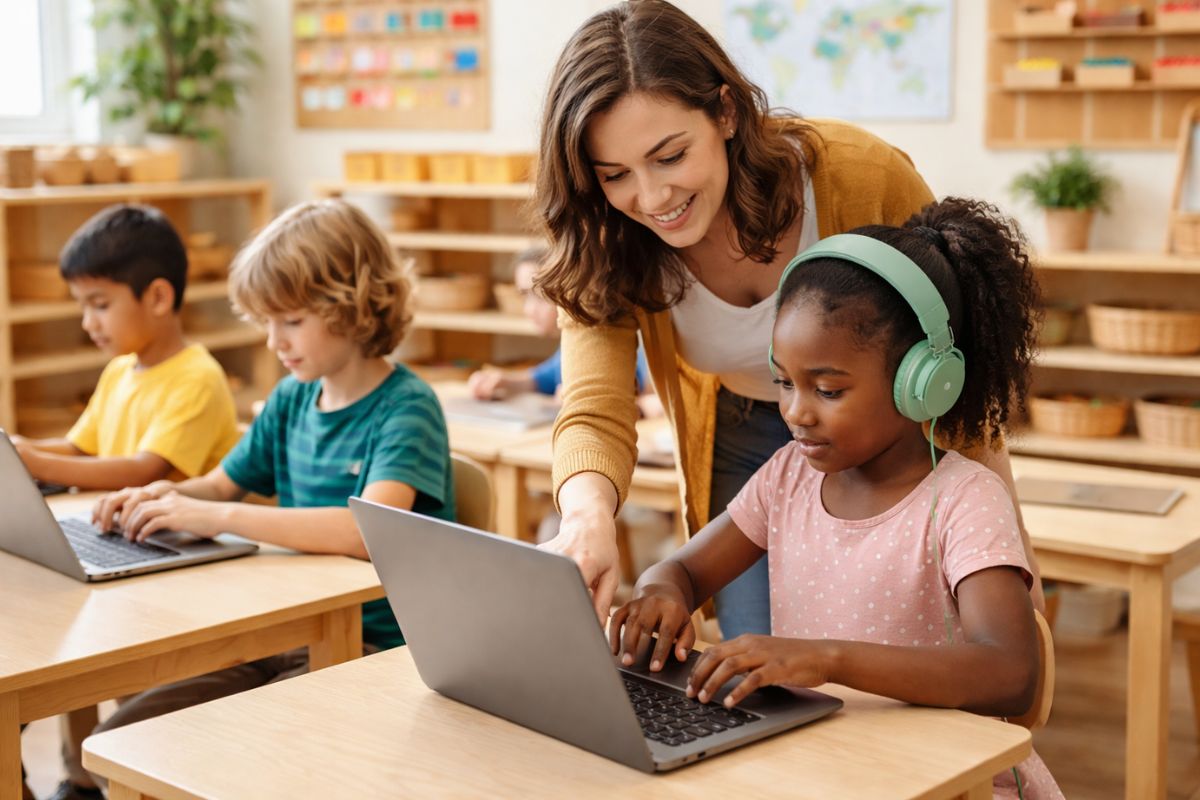Children sit taller when they feel capable. You can see it in the way their shoulders relax and their hands move with quiet confidence. Touch typing, often treated as a mechanical computer skill, can actually become a deeply developmental experience when introduced through Montessori principles. Instead of drills and pressure, […]
Read More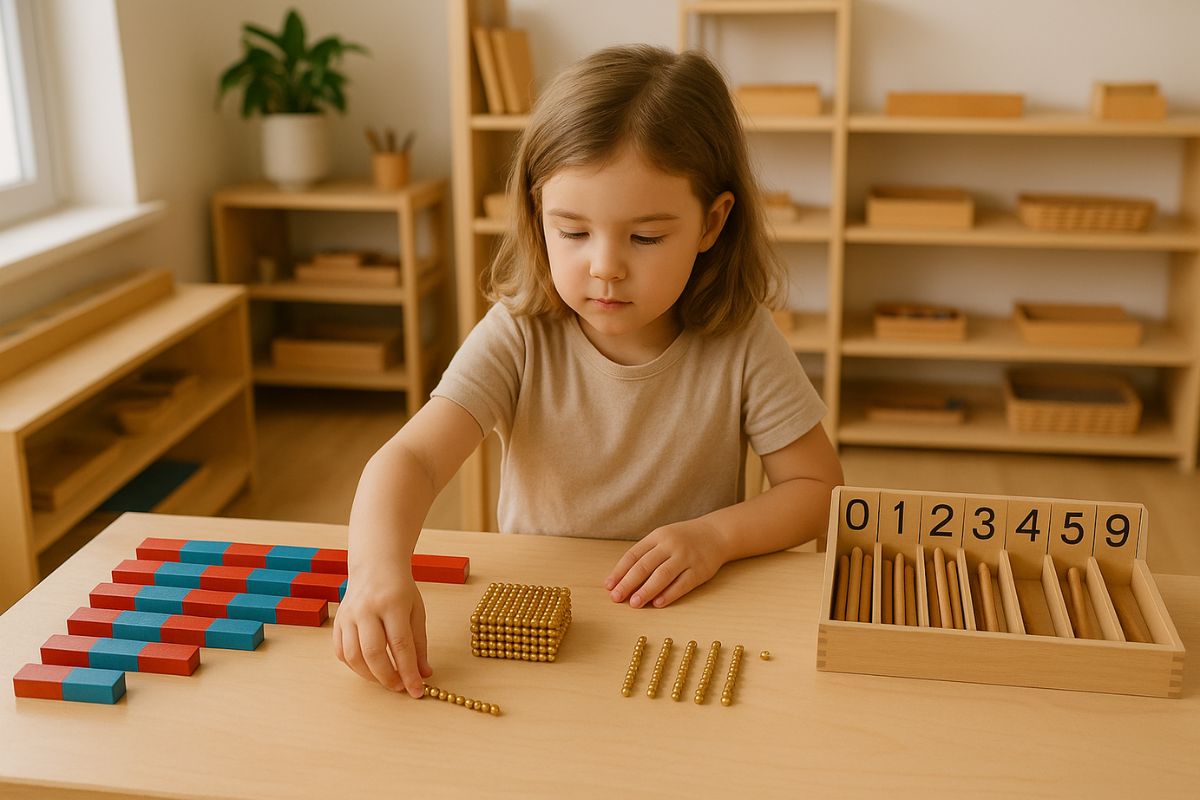
Montessori Math with Learning Materials
Math is often seen as numbers on a page, but in Montessori classrooms, it looks and feels different. Instead of abstract problems right away, children begin with hands-on materials that make math come alive. They build, count, touch, and move their way into understanding. This method respects how children naturally […]
Read More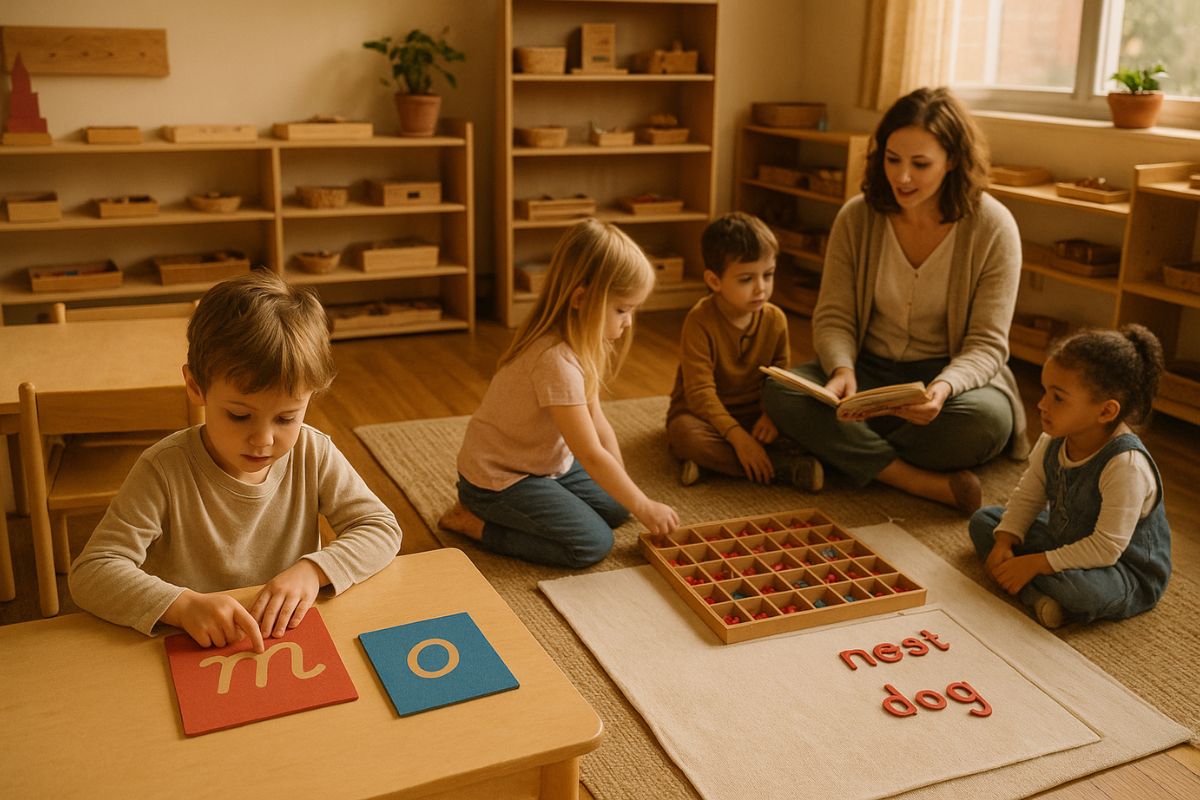
How Montessori Develops Language Skills
Language is more than just a way to speak. It shapes how children think, connect, and understand the world around them. For parents and educators, helping children build strong language skills is one of the most meaningful things they can do. In Montessori classrooms, this process starts early and follows […]
Read More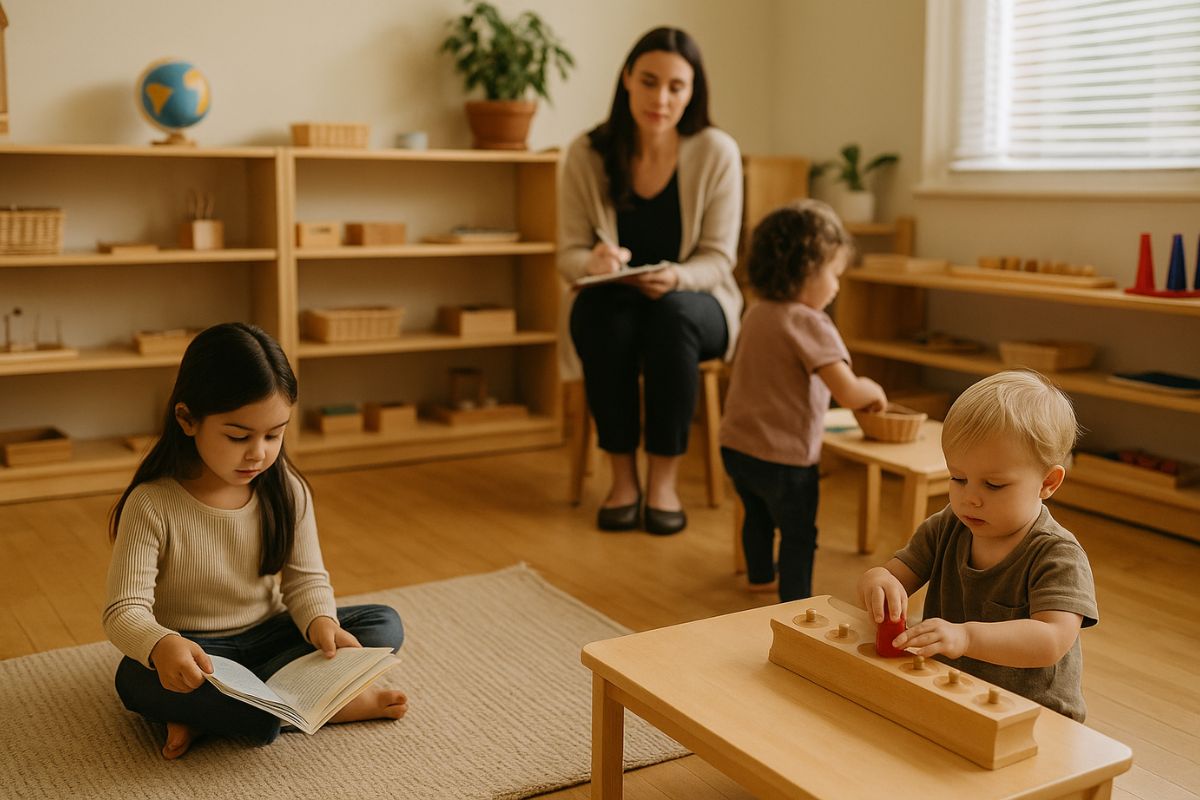
The Role of Observation in Montessori Classrooms
Every Montessori classroom offers a peaceful, prepared environment where children can grow in their own time. But behind this quiet rhythm is a careful, intentional practice—observation. It’s one of the most powerful tools a Montessori guide uses, yet it often goes unseen by those unfamiliar with the approach. For children […]
Read More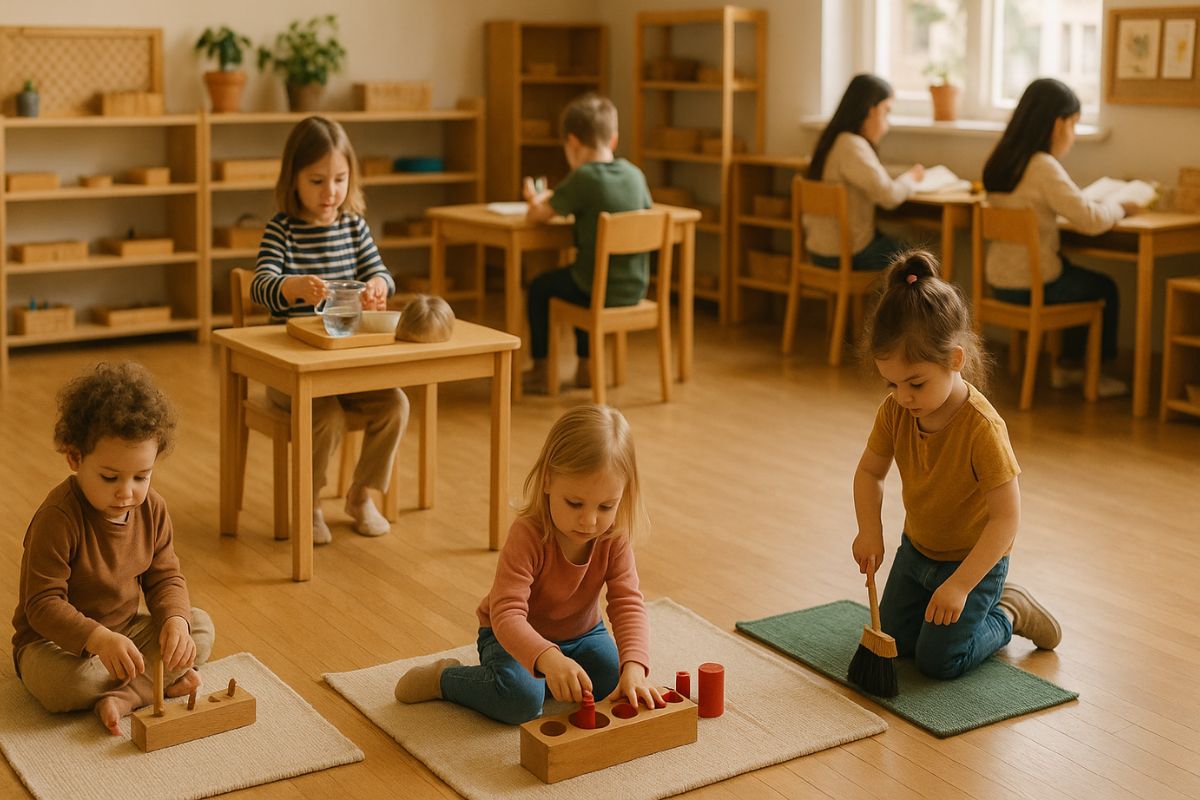
Daily Routines in Montessori for Each Age Group
Children thrive on rhythm. In Montessori environments, daily routines are more than just schedules—they’re intentional frameworks that support growth, independence, and focus. From the youngest toddlers to children preparing for adolescence, each routine reflects the needs of the child at that stage while nurturing their natural desire to learn. Montessori […]
Read More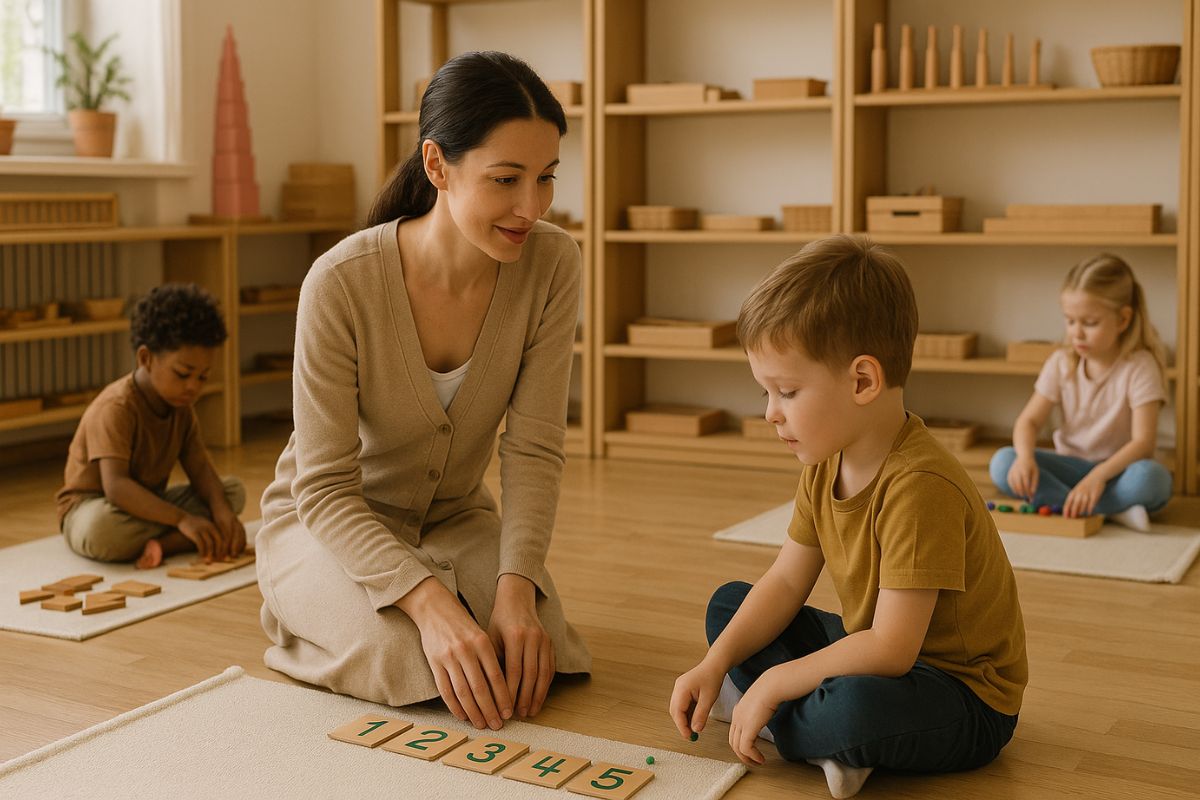
How Montessori Teachers Guide
In a Montessori classroom, the teacher doesn’t stand in front of the room giving lectures. Instead, they move quietly through the space, observing, offering help when needed, and guiding children toward purposeful work. Their role is gentle but deeply intentional. Montessori teachers are trained to watch closely, listen carefully, and […]
Read More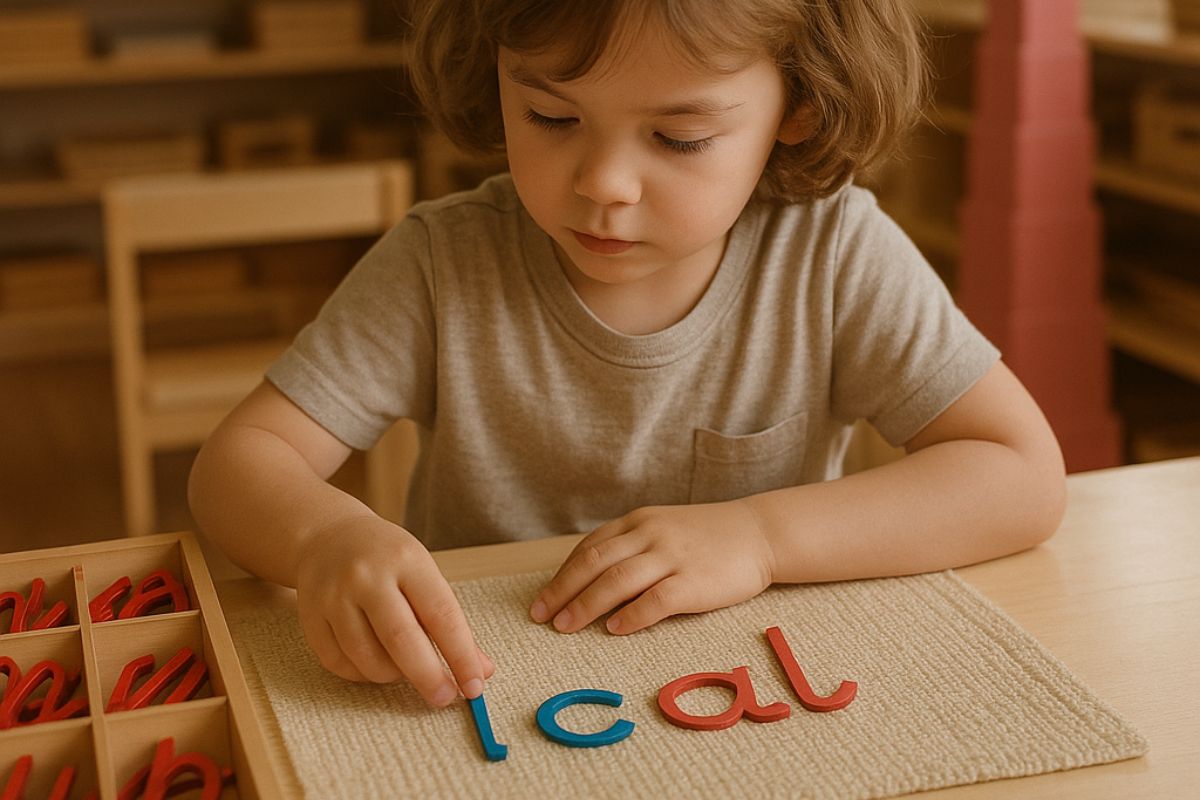
Self-Correction in Montessori Learning
One of the most powerful lessons in a Montessori classroom comes from what the child learns after making a mistake. In this environment, errors are not punished or fixed by the teacher right away. Instead, children are encouraged to notice mistakes, reflect, and try again. This process is called self-correction—and […]
Read More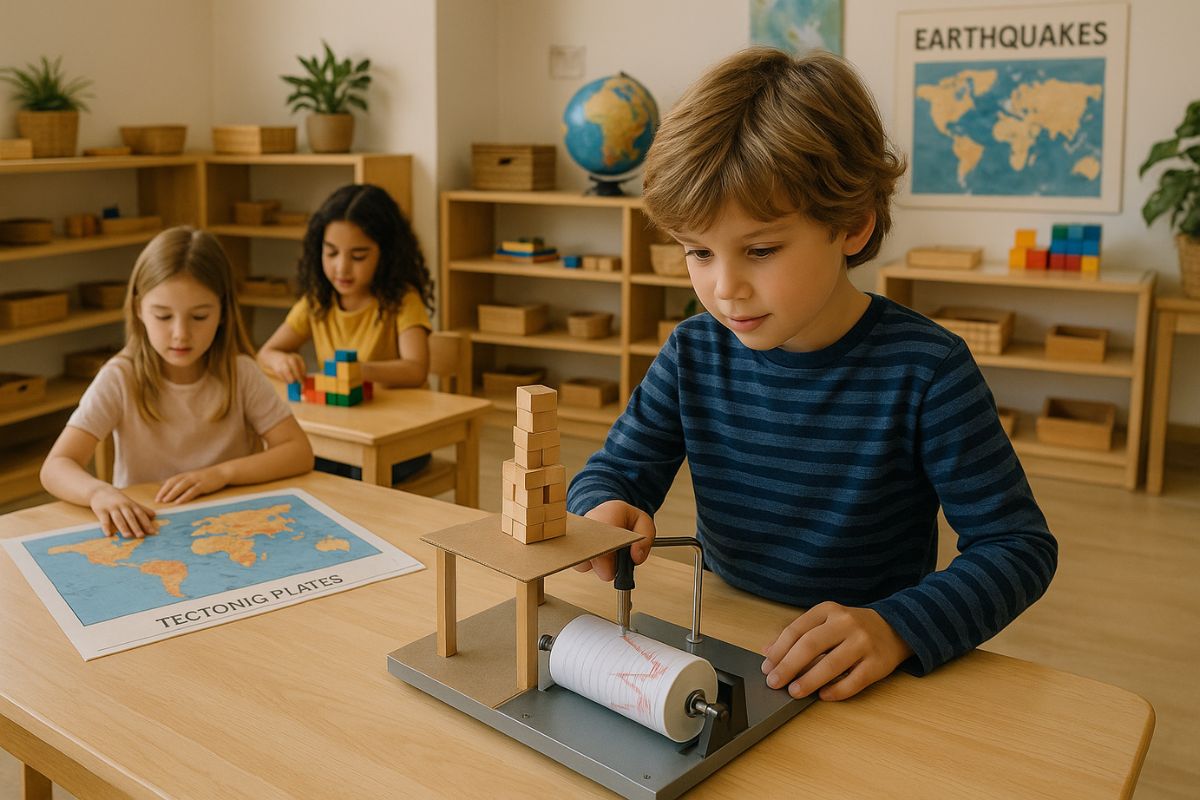
Introducing Natural Science with Earthquake Studies
Children are full of questions. They wonder why the ground shakes, what causes mountains to rise, and how the Earth changes shape. These big questions are perfect entry points for natural science in a Montessori setting. Introducing earthquakes to young learners isn’t about causing fear—it’s about showing them the power […]
Read More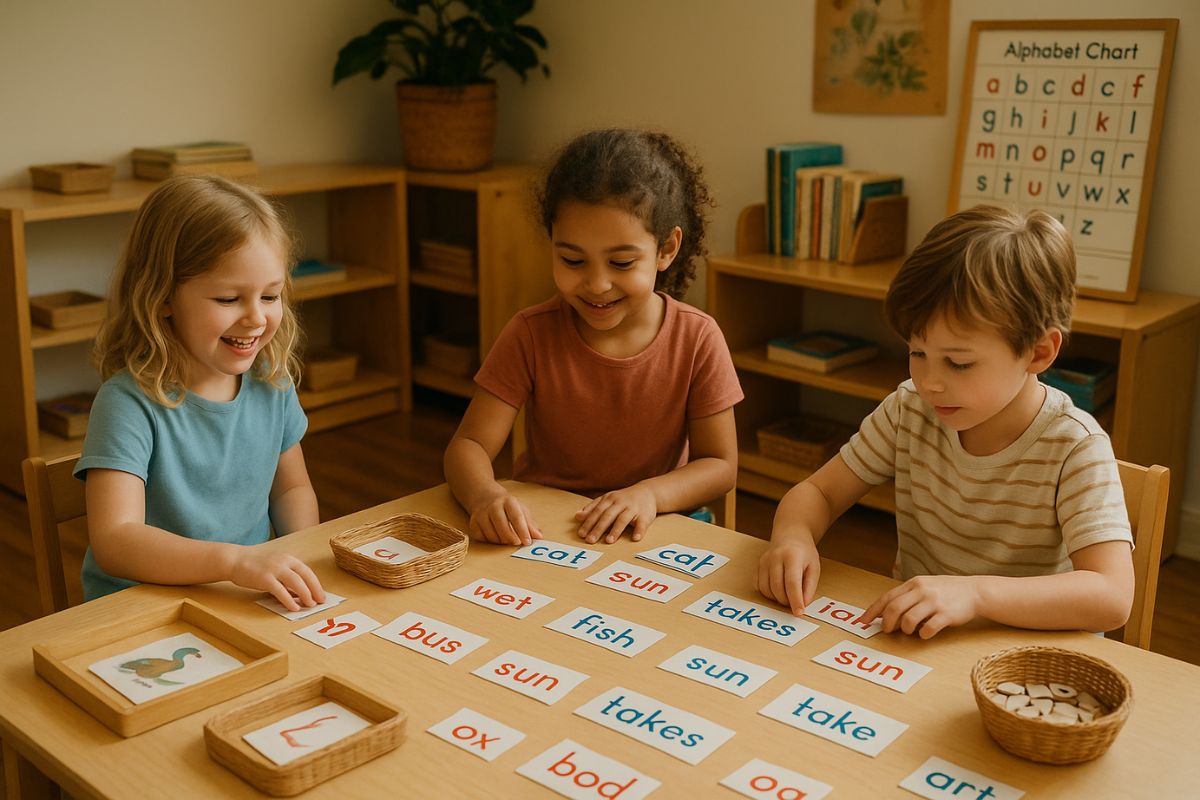
Creative Language Play with Random Words
Children absorb language with a sense of wonder. They don’t just learn vocabulary—they invent, imagine, and twist words in playful ways. In a Montessori environment, this natural tendency toward language exploration is respected and encouraged. When children are given space to play with language, even through random or silly word […]
Read More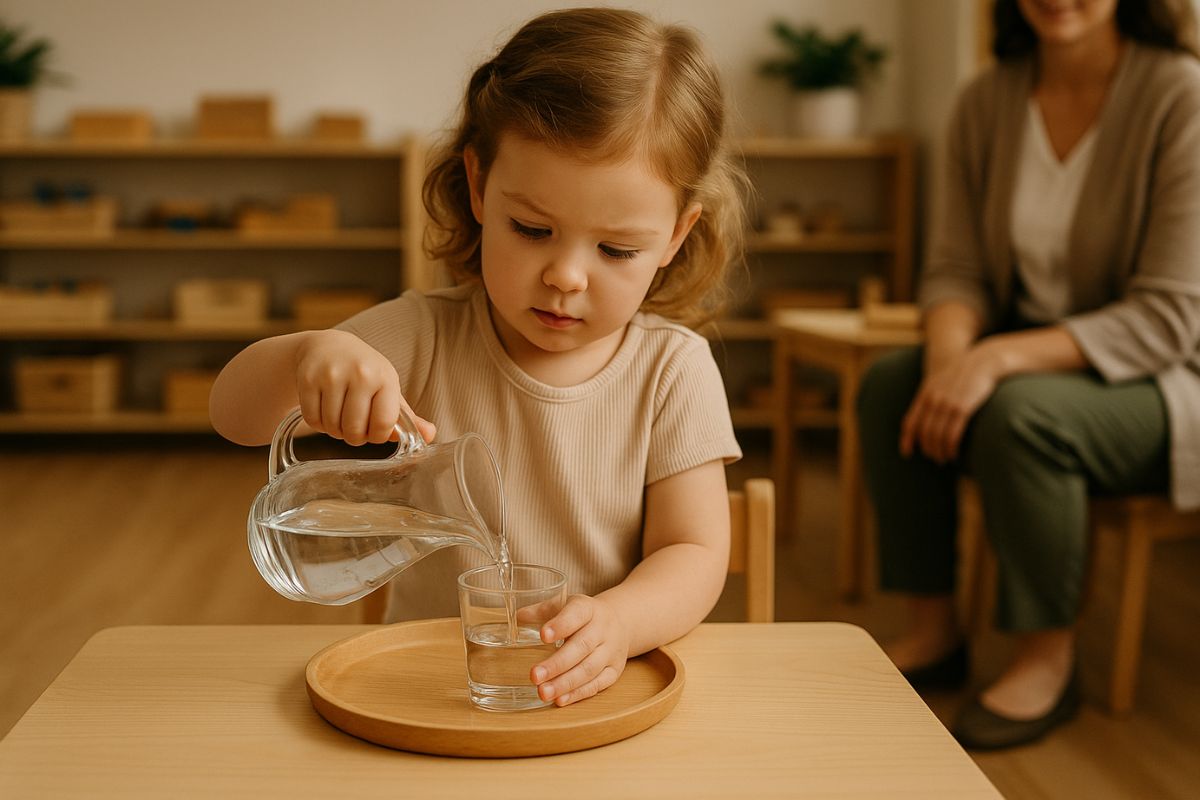
How to Introduce Practical Life Activities in Montessori
Young children want to do what adults do. They watch closely, copy movements, and try to take part in everyday life. In the Montessori approach, this natural interest is supported through a key area of the classroom called Practical Life. These activities help children learn independence, care for their environment, […]
Read More